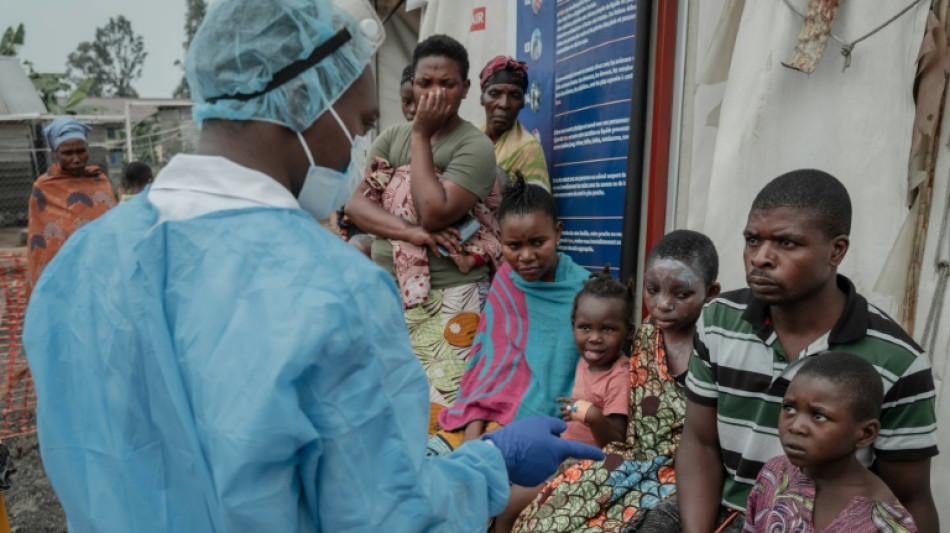
-
 Prince William plays football, volleyball in Rio on climate trip
Prince William plays football, volleyball in Rio on climate trip
-
Jamaicans mobilize aid in aftermath of Melissa's wreckage
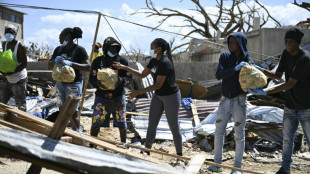
-
 Starbucks cedes China control to Boyu Capital
Starbucks cedes China control to Boyu Capital
-
'Wild at Heart' actress Diane Ladd dies at 89

-
 Xhaka lifts Sunderland into fourth after Everton draw
Xhaka lifts Sunderland into fourth after Everton draw
-
Brazil records biggest annual fall in emissions in 15 years: report

-
 Victor Conte, mastermind of BALCO doping scandal, dead at 75: company
Victor Conte, mastermind of BALCO doping scandal, dead at 75: company
-
Trial opens in 1st US civil case on 2019 Boeing MAX crash
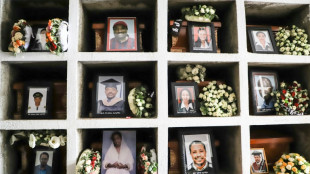
-
 Barrett brothers out of All Blacks' clash with Scotland
Barrett brothers out of All Blacks' clash with Scotland
-
Medieval tower partially collapses in Rome, trapping worker

-
 Arsenal's Arteta says injured Gyokeres out of Slavia Prague tie
Arsenal's Arteta says injured Gyokeres out of Slavia Prague tie
-
Alonso says 'quality' Wirtz helped get him Real Madrid job

-
 US Fed's Cook warns inflation to stay 'elevated' next year
US Fed's Cook warns inflation to stay 'elevated' next year
-
Blue heaven: huge crowds salute Los Angeles Dodgers in victory parade

-
 Dutch centrist Jetten clinches election win: final tally
Dutch centrist Jetten clinches election win: final tally
-
Mamdani extends olive branch to anxious NY business community

-
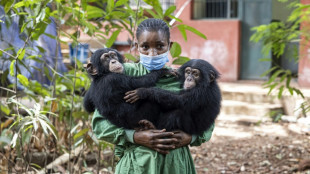 Sierra Leone chimpanzee sanctuary reopens after deforestation protest
Sierra Leone chimpanzee sanctuary reopens after deforestation protest
-
Shein bans sex dolls after France outrage over 'childlike' ones

-
 England full-back Steward doubtful for Autumn rugby clash with Fiji
England full-back Steward doubtful for Autumn rugby clash with Fiji
-
Bayern know how to 'hurt' PSG, says Neuer

-
 Rybakina downs Swiatek to reach WTA Finals last four
Rybakina downs Swiatek to reach WTA Finals last four
-
Ex-France international Ben Yedder to stand trial on rape charges

-
 Djokovic confirmed for ATP Finals, says Italian federation boss
Djokovic confirmed for ATP Finals, says Italian federation boss
-
Trent should be remembered for 'great' Liverpool moments, says Slot

-
 Stock markets diverge despite boost from AI deals
Stock markets diverge despite boost from AI deals
-
Prince William awed by Rio on climate-focused trip to Brazil

-
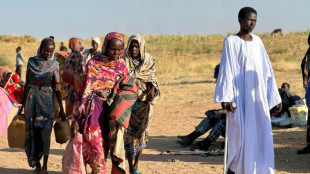 Violence in Sudan's El-Fasher could be war crimes, says top court
Violence in Sudan's El-Fasher could be war crimes, says top court
-
Rybakina downs Swiatek in WTA Finals

-
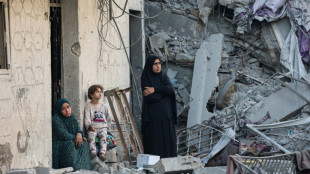 Turkey, Muslim allies say Palestinian self-rule key to Gaza future
Turkey, Muslim allies say Palestinian self-rule key to Gaza future
-
Tens of thousands shelter as typhoon slams into Philippines
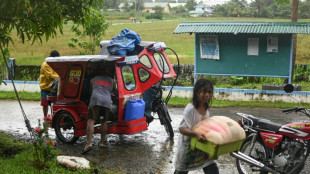
-
 Stock markets rise as tech sector buoyed by fresh AI deal
Stock markets rise as tech sector buoyed by fresh AI deal
-
Vitinha says PSG-Bayern Champions League clash will show who's 'best'

-
 Arsenal: The unstoppable Premier League force?
Arsenal: The unstoppable Premier League force?
-
Denmark inaugurates rare low-carbon hydrogen plant

-
 Springboks back Ntlabakanye call-up despite doping probe
Springboks back Ntlabakanye call-up despite doping probe
-
German plans to lower industrial power costs from January

-
 Christian, Muslim Nigerians push back on threatened US strikes
Christian, Muslim Nigerians push back on threatened US strikes
-
Nigeria's Rivers United paired with African champions Pyramids

-
 India women cricketers hail new era but challenges remain
India women cricketers hail new era but challenges remain
-
'Heroic' worker praised as man charged over UK train stabbings

-
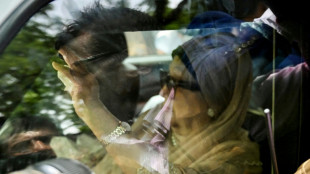 Bangladesh ex-PM Zia to contest elections: party
Bangladesh ex-PM Zia to contest elections: party
-
Tanzania president sworn in as opposition says hundreds killed in protests

-
 India announces $5.75 million reward for women cricket World Cup winners
India announces $5.75 million reward for women cricket World Cup winners
-
Spain regional leader resigns, a year after deadly floods

-
 Video game creators fear AI could grab the controller
Video game creators fear AI could grab the controller
-
France threatens Shein ban if 'childlike' sex dolls reappear

-
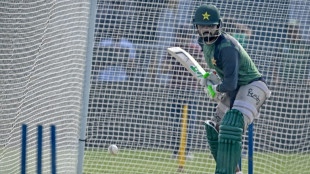 International cricket returns to Faisalabad with Pakistan-South Africa ODIs
International cricket returns to Faisalabad with Pakistan-South Africa ODIs
-
Afghan govt says quake kills 20, injures over 500
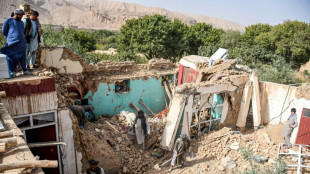
-
 'We're all too rich,' says photo legend Martin Parr
'We're all too rich,' says photo legend Martin Parr
-
Tanzania president inaugurated as opposition says hundreds dead
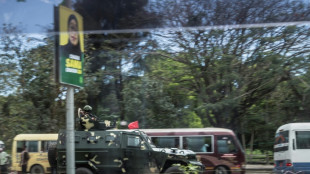
| RBGPF | -3.95% | 76 | $ | |
| SCS | -0.76% | 15.84 | $ | |
| AZN | -0.83% | 81.72 | $ | |
| NGG | -0.68% | 74.74 | $ | |
| RYCEF | 1.37% | 15.36 | $ | |
| BTI | 2.38% | 52.44 | $ | |
| BCC | -3.15% | 68.34 | $ | |
| RELX | -0.16% | 44.17 | $ | |
| CMSC | -0.34% | 23.67 | $ | |
| GSK | -1.1% | 46.35 | $ | |
| RIO | -1.95% | 70.37 | $ | |
| BCE | -0.84% | 22.67 | $ | |
| JRI | -0.14% | 13.88 | $ | |
| BP | -0.75% | 34.87 | $ | |
| CMSD | -0.38% | 23.9 | $ | |
| VOD | -5.89% | 11.38 | $ |

Fear grips east DR Congo as displaced await mpox vaccine
An ever-growing number of patients have been flocking to a Goma hospital in eastern Democratic Republic of Congo, where a rapidly-spreading epidemic of mpox has erupted in recent months.
Five to 20 people are walking each day into Nyiragongo General Referral Hospital in North Kivu to consult overburdened medical teams at an outdoor isolation centre, fearing they are ill with the virus.
The disease can spread from animals to humans, but also human-to-human through sexual or close physical contact.
Doctor Tresor Basubi inspected the breathing and heartbeat of a calm little girl whose body was covered in skin lesions caused by the disease, which has killed 548 people so far this year.
Cases have now surfaced in all provinces of the DRC, a country of 100 million people.
"This is just the start, the child is not asthenic, she does not show severe symptoms, she can walk on her own," said Basubi as he examined the girl.
In benign cases, which make up the great majority of infections, treatments can help relieve the symptoms -- including paracetamol to reduce fevers and a zinc oxide cream to soothe the lesions.
"Patients get itchy but the scars go away with time," the doctor added.
While mpox cases have emerged previously, a new more deadly and more transmissible strain of the virus -- clade 1b -- causes death in around 3.6 percent of cases, with infants and children being more at risk, according to the World Health Organisation (WHO).
- The displaced at risk -
The DRC, which has recorded around 16,000 cases so far this year, is the epicentre of an epidemic that led the WHO to trigger Wednesday its highest level of international alert.
The neighbouring province of South Kivu alone has been detecting some 350 new cases per week, said Justin Bengehya, an epidemiologist at the provincial health division of South Kivu.
Goma, the capital of North Kivu, almost surrounded by an armed rebellion and where hundreds of thousands of displaced people are crammed into makeshift camps, fears a large-scale spread due to promiscuity.
At the treatment centre, parents held their contagious children in their arms despite risks of skin-to-skin transmission, and as staff has been raising awareness about prevention measures.
"My son was hospitalised here for mpox, and my daughter was looking after him. After they got out on a Sunday, my daughter began showing the same symptoms by Wednesday," said Deogracias Mahombi Sekabanza, a health worker who brought his daughter Confiance.
Sekabanza said his son was infected after playing with friends.
- "We are scared" -
Furaha Makambo has been living in a nearby tent with her three children, Ornella, Rachelle et Baraka -- all contracted mpox on the camp where they have been displaced.
"My children sleep on the same bed and they are constantly contaminated at the same time, and I didn't have an extra bed to separate them," said Makambo.
After her husband passed away, she fled her home region of Masisi in eastern DRC, where violent armed groups are operating, and sought refuge in Goma.
"We are scared, this disease needs to be eradicated so that it stops reaching the displaced because it can exterminate us," she told AFP.
While preventative measures and experience from previous epidemics are helping staff respond to suspected cases swiftly, children in particular struggle with social distancing.
"This disease is very contagious. If you touch the sweat, urine or even clothes of a sick person, you are directly exposed," said doctor Basubi.
"Washing hands with soap or ashes can help protect you but there is no guarantee," he added.
In a tent she shares with three children from other families, Nyota Mukobelwa, a doughnut vendor who was displaced by fighting, sat on her bed, chuckling elegantly in front of cameras.
"The vaccine needs to be available, otherwise the epidemic will continue to spread, many people will die and we will contamine our children at home," she said.
The WHO has urged manufacturers to ramp up production of mpox vaccines to rein in the spread of clade 1b cases, asking countries to donate stockpiles to countries with outbreaks.
C.Kreuzer--VB




